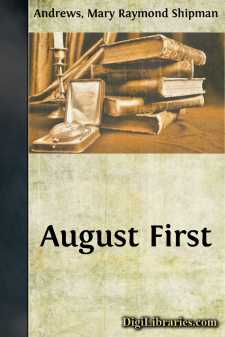Categories
- Antiques & Collectibles 13
- Architecture 36
- Art 48
- Bibles 22
- Biography & Autobiography 813
- Body, Mind & Spirit 142
- Business & Economics 28
- Children's Books 17
- Children's Fiction 14
- Computers 4
- Cooking 94
- Crafts & Hobbies 4
- Drama 346
- Education 46
- Family & Relationships 57
- Fiction 11829
- Games 19
- Gardening 17
- Health & Fitness 34
- History 1377
- House & Home 1
- Humor 147
- Juvenile Fiction 1873
- Juvenile Nonfiction 202
- Language Arts & Disciplines 88
- Law 16
- Literary Collections 686
- Literary Criticism 179
- Mathematics 13
- Medical 41
- Music 40
- Nature 179
- Non-Classifiable 1768
- Performing Arts 7
- Periodicals 1453
- Philosophy 64
- Photography 2
- Poetry 896
- Political Science 203
- Psychology 42
- Reference 154
- Religion 513
- Science 126
- Self-Help 84
- Social Science 81
- Sports & Recreation 34
- Study Aids 3
- Technology & Engineering 59
- Transportation 23
- Travel 463
- True Crime 29
The Courage of the Commonplace
Description:
Excerpt
The girl and her chaperon had been deposited early in the desirable second-story window in Durfee, looking down on the tree. Brant was a senior and a "Bones" man, and so had a leading part to play in the afternoon's drama. He must get the girl and the chaperon off his hands, and be at his business. This was "Tap Day." It is perhaps well to explain what "Tap Day" means; there are people who have not been at Yale or had sons or sweethearts there.
In New Haven, on the last Thursday of May, toward five in the afternoon, one becomes aware that the sea of boys which ripples always over the little city has condensed into a river flowing into the campus. There the flood divides and re-divides; the junior class is separating and gathering from all directions into a solid mass about the nucleus of a large, low-hanging oak tree inside the college fence in front of Durfee Hall. The three senior societies of Yale, Skull and Bones, Scroll and Key, and Wolf's Head, choose to-day fifteen members each from the junior class, the fifteen members of the outgoing senior class making the choice. Each senior is allotted his man of the juniors, and must find him in the crowd at the tree and tap him on the shoulder and give him the order to go to his room. Followed by his sponsor he obeys and what happens at the room no one but the men of the society know. With shining face the lad comes back later and is slapped on the shoulder and told, "good work, old man," cordially and whole-heartedly by every friend and acquaintance—by lads who have "made" every honor possible, by lads who have "made" nothing, just as heartily. For that is the spirit of Yale.
Only juniors room in Durfee Hall. On Tap Day an outsider is lucky who has a friend there, for a window is a proscenium box for the play—the play which is a tragedy to all but forty-five of the three hundred and odd juniors. The windows of every story of the gray stone facade are crowded with a deeply interested audience; grizzled heads of old graduates mix with flowery hats of women; every one is watching every detail, every arrival. In front of the Hall is a drive, and room for perhaps a dozen carriages next the fence—the famous fence of Yale—which rails the campus round. Just inside it, at the north-east corner, rises the tree. People stand up in the carriages, women and men; the fence is loaded with people, often standing, too, to see that tree.
All over the campus surges a crowd; students of the other classes, seniors who last year stood in the compact gathering at the tree and left it sore-hearted, not having been "taken"; sophomores who will stand there next year, who already are hoping for and dreading their Tap Day; little freshmen, each one sure that he, at least, will be of the elect; and again the iron-gray heads, the interested faces of old Yale men, and the gay spring hats like bouquets of flowers.
It is, perhaps, the most critical single day of the four years' course at the University. It shows to the world whether or no a boy, after three years of college life, has in the eyes of the student body "made good." It is a crucial test, a heart-rending test for a boy of twenty years.
The girl sitting in the window of Durfee understood thoroughly the character and the chances of the day. The seniors at the tree wear derby hats; the juniors none at all; it is easier by this sign to distinguish the classmen, and to keep track of the tapping. The girl knew of what society was each black-hatted man who twisted through the bareheaded throng; in that sea of tense faces she recognized many; she could find a familiar head almost anywhere in the mass and tell as much as an outsider might what hope was hovering over it....









